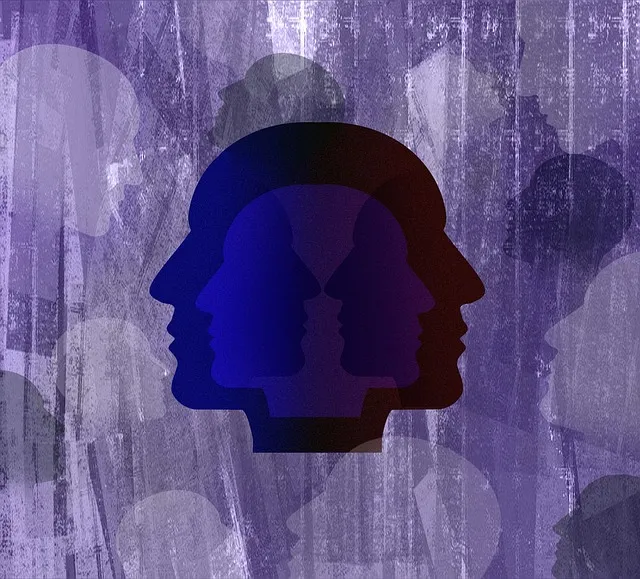Cultural competency is vital in healthcare, especially for diverse mental health patients. Organizations like Kaiser Aurora must offer cultural sensitivity training for healthcare providers to understand and respect different beliefs about mental illness and healing. This includes learning stress management, emotional intelligence, and coping mechanisms from various cultural perspectives. By creating an accepting environment, providers build trust, improve patient engagement, and tailor stress management workshops. At Kaiser Aurora, Inner Strength Development, Social Skills Training, and Coping Skills Training bridge cultural gaps, facilitating access to mental health services for diverse patients. Measuring training outcomes and patient satisfaction rates ensures long-term effectiveness, as seen through enhanced service access and improved patient outcomes.
Healthcare provider cultural competency training is essential in delivering effective mental health services, especially within diverse communities. This article explores the significance of such training for mental health professionals at Kaiser Aurora, focusing on designing comprehensive programs and measuring their impact. By understanding cultural competency, we enhance patient care, improve outcomes, and ensure accessible mental health services through Kaiser Aurora. Key components include community engagement, interprofessional education, and regular evaluation to foster a culturally responsive healthcare environment.
- Understanding Cultural Competency in Healthcare: Why It Matters for Mental Health Services
- Designing Effective Training Programs: Key Components for Kaiser Aurora's Staff
- Measuring Success and Continuous Improvement: Evaluating the Impact of Cultural Competency Training
Understanding Cultural Competency in Healthcare: Why It Matters for Mental Health Services

Cultural competency in healthcare is a vital aspect that ensures patients from diverse backgrounds receive quality and respectful care. In mental health services, this becomes even more critical as it directly impacts access to care and treatment outcomes. The diverse communities served by Kaiser Aurora, for instance, how to get mental health services through Kaiser Aurora, require a nuanced understanding of cultural norms and beliefs related to mental illness and healing.
Mental Health Education Programs Design that incorporate cultural competency train healthcare providers to recognize and appreciate these differences. This includes learning about various cultural practices related to stress management, emotional intelligence, and coping mechanisms. By fostering an environment where patients feel understood and accepted, healthcare providers can build trust and improve engagement in care, ultimately leading to more effective Stress Management Workshops Organization tailored to individual needs.
Designing Effective Training Programs: Key Components for Kaiser Aurora's Staff

At Kaiser Aurora, designing effective cultural competency training programs involves integrating key components to ensure staff are equipped to provide compassionate and competent care. One crucial element is Inner Strength Development, focusing on empowering healthcare providers to understand and validate their own emotions while cultivating resilience in high-stress environments. This fosters a supportive atmosphere that trickles down to the patients, enhancing their overall experience.
Moreover, incorporating Social Skills Training and Coping Skills Development into the curriculum is essential. Teaching effective communication strategies helps bridge cultural gaps and builds trust between providers and diverse patient populations. Equally important, coping skills development equips staff with tools to navigate challenging situations, thereby improving patient outcomes and job satisfaction. By seamlessly integrating these components, Kaiser Aurora’s training programs not only enhance cultural sensitivity but also strengthen the capacity of its staff to facilitate access to how to get mental health services in a respectful, inclusive manner.
Measuring Success and Continuous Improvement: Evaluating the Impact of Cultural Competency Training

Measuring the success of healthcare provider cultural competency training is a crucial step to ensure its long-term impact and effectiveness. By evaluating the training’s outcomes, organizations can identify areas for improvement and tailor their programs accordingly. One effective method is through post-training assessments that gauge participants’ knowledge, attitudes, and skills related to cultural competence. These assessments can include surveys, case studies, or role-play scenarios to assess practical application.
Additionally, tracking patient satisfaction rates, especially among diverse populations, can provide valuable insights. For example, at Kaiser Aurora, how to get mental health services has seen improvements post-training, with increased access and better patient outcomes. The Mental Wellness Journaling Exercise Guidance and Stress Management Workshops Organization within the hospital have been instrumental in promoting cultural competence, fostering an environment where patients from various backgrounds feel heard and supported. This continuous improvement approach ensures that healthcare providers are equipped to deliver culturally sensitive care, ultimately enhancing the overall quality of services.
Cultural competency training is a game-changer in healthcare, especially for providing accessible and effective mental health services. As demonstrated by Kaiser Aurora’s successful program, designing comprehensive training with key components like cultural awareness, communication skills, and bias recognition can significantly improve patient outcomes. By measuring the impact through evaluation and feedback, healthcare providers can continually enhance their practices. This ensures that patients from diverse backgrounds receive the highest quality of care, fostering trust and improving access to mental health services through Kaiser Aurora and similar institutions.






